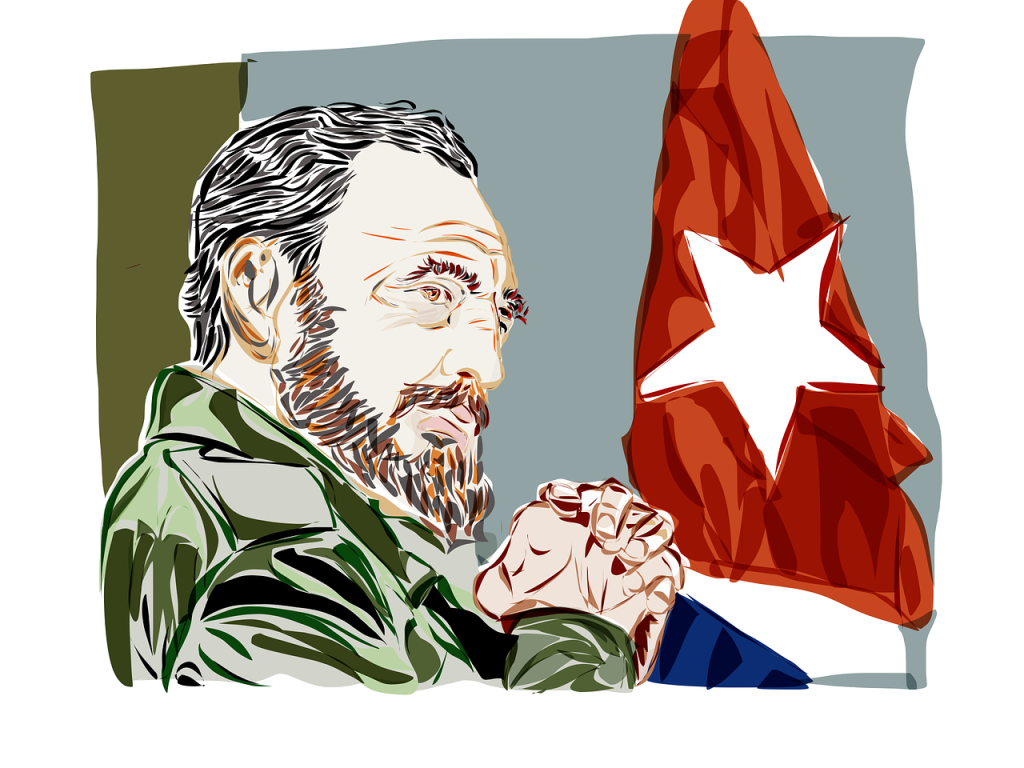
Jan Vlcek on the controversial life of the late, Fidel Castro.
Miami cheers. Havana in tears. The responses to Fidel Castro’s death could not have been more different. While the descendants of those who fled from the dictator’s authoritarian regime,to the not-so-distant United States, gathered in streets to celebrate the death of “one of the biggest murderers of the 20th century”, people all over Cuba were left in shock after their beloved leader, guerrilla warfare pioneer and father of the revolution had passed away. The enthusiasm expressed by both crowds is a perfect statement of what Castro meant to these people. One man’s criminal, another man’s hero.
One would expect Europe, being thousands of miles away from the epicentre of Castro’s activities and wrongdoings, to perhaps offer a short comment on his death and quietly move on. Unfortunately, not. Jean Claude Juncker, the President of the EU Commission, conveyed his condolences to Raúl Castro and the people of Cuba, calling the former leader “a hero of many”. This sparked yet another heated argument both in Brussels and across the old continent, proving once again how irritable and disunited in opinion Europe currently is.
Meanwhile, back across the Atlantic, Donald Trump, the soon-to-be President of the US, celebrated Castro’s passing with a self explanatory “Fidel Castro is dead” tweet, taking his own stance on what it means to express the opinion of the general public. Making this his millionth tweet following his early November victory in the presidential election, no one really seemed to care anymore.
While Castro’s death manages to cause a divide and clash of opinions, it is more of a symbolic one, marking a definite end to the Cold War anachronisms and what the world knew as the 20th century communism. The travel bans and partially the embargo have both been eased by the Obama administration, Fidel’s brother Raúl has steered Cuba towards mixed-market economy and introduced numerous reforms and starting from 2018, Cuba is expected to have a new, non-revolutionary leader.
The world will remember Fidel Castro, apart from being responsible for 10,000 to 100,000 deaths, as someone who rid Cuba of one dictatorship only to install another, who reportedly enjoyed humiliating his guests on the basketball court or whose wardrobe quite possibly contained only two pieces of clothing: his green military uniforms and his Adidas tracksuits. His legacy is indisputable; he changed the course of his country and the world. He introduced education and health care reforms to one of the poorest regions in the world. He survived over 600 assassination attempts. The longest of his famous speeches lasted for more than 7 hours. The list goes on…
Fidel Alejandro Castro Ruz was one of the most significant leaders of the 20th century, who has left a very heavy, yet controversial mark. His ruthlessness makes him a villain in the eyes of the west, his ability to combat imperialism a hero in Cuba. Whichever stand we take, we cannot ignore his legacy.
Photo Source: Pixabay (Free for commercial use, No attribution required)
